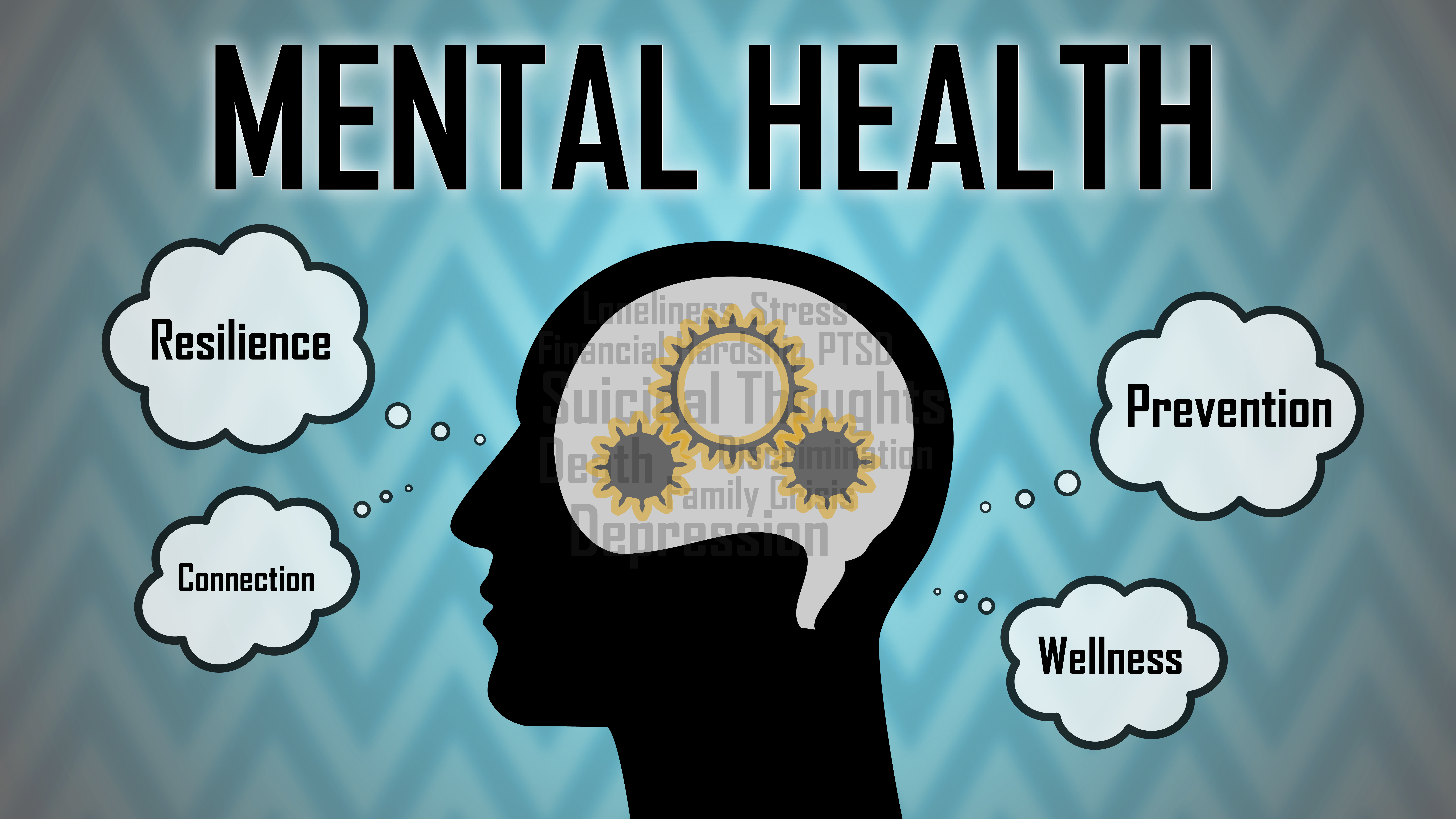Effective Mental Health Services: Solutions for each Situation
Effective Mental Health Services: Solutions for each Situation
Blog Article
Checking Out the Connection In Between Nutrition and Mental Health And Wellness Improvement
The effects of our dietary options on psychological well-being have been progressively identified by health specialists and researchers alike. As we navigate the complex landscape of contemporary way of lives, uncovering the nuanced connection in between nourishment and psychological wellness improvement may hold the secret to opening a much deeper understanding of our psychological and cognitive strength.
Impact of Food on Mood
The connection in between dietary options and state of mind law is a crucial element of recognizing the influence of food on psychological health. Research study has actually revealed that specific foods can affect natural chemical activity, impacting state of mind and psychological states. For instance, foods rich in omega-3 fats, such as fatty fish, walnuts, and flaxseeds, have been linked to lower rates of depression and improved state of mind law.
Additionally, intricate carbs discovered in whole grains, fruits, and vegetables can help manage blood sugar level degrees, which consequently can have a positive effect on state of mind stability. On the various other hand, diets high in refined foods, sugar, and hydrogenated fats have been related to an increased risk of depression and state of mind conditions.
Moreover, the gut-brain link plays a substantial function in mood law. The intestine microbiome, influenced by the foods we eat, can connect with the mind through the gut-brain axis, affecting state of mind, anxiety levels, and total psychological well-being. As a result, making mindful and nourishing nutritional options is important for keeping a healthy and balanced state of mind.

Necessary Nutrients for Anxiety
:max_bytes(150000):strip_icc()/Mental-health-strategies-with-Asian-origins-FINAL-184eb30f4399444599889a0fdc496744.png)
Additionally, the amino acid tryptophan, found in foods like turkey, eggs, and nuts, is a precursor to serotonin production, a neurotransmitter understood for its role in advertising sensations of calmness and wellness. Vitamin B facility, especially B6 and B12, are additionally essential for preserving a healthy and balanced nerve system and might help in reducing anxiousness signs and symptoms.
Integrating these essential nutrients into a healthy diet plan can have a favorable impact on handling anxiousness and enhancing total mental health and wellness.
Dietary Strategies for Depression

One dietary strategy for handling clinical depression is focusing on foods rich in omega-3 fats, such as fatty fish, flaxseeds, and walnuts. Omega-3 fatty acids have been linked to lowering swelling in the mind and enhancing natural chemical function, which can favorably affect state of mind. Furthermore, increasing the intake of fruits, veggies, entire grains, and lean healthy proteins while decreasing the consumption of refined foods and sugars may assist in minimizing depressive signs and symptoms.
Furthermore, keeping sufficient levels of vitamin D, either with sunshine exposure or supplementation, is essential for sustaining psychological wellness. Vitamin D deficiency has been connected with an enhanced risk of anxiety, making it vital to make certain sufficient consumption of this nutrient. By integrating these dietary methods, people might efficiently complement standard treatments for depression and enhance their general health.
Gut-Brain Axis and Mental Wellness
Concentrating on the intricate connection in between the gastrointestinal system and mental health and wellness, the Gut-Brain Axis plays a pivotal role in influencing cognitive features and emotional health. The Gut-Brain Axis is a bidirectional communication network in between the main nerves and the enteric nerves, linking the click this site psychological and cognitive centers of the brain with outer digestive features. This axis is managed by a complex interplay of neural, immune, endocrine, and metabolic pathways.
Research recommends that the make-up of intestine microbiota, the varied neighborhood of bacteria living in the gastrointestinal tract, can have a profound influence on mental health and wellness. Discrepancies in intestine microbiota, called dysbiosis, have been linked with conditions such as depression, anxiety, and also neurodegenerative conditions. Additionally, the intestine microbiota plays an essential duty in the production of neurotransmitters like serotonin, which is vital for regulating mood and emotional actions.
Preserving a healthy and balanced intestine microbiota through a well balanced diet abundant in fiber, fermented foods, and probiotics is crucial for sustaining mental health (Mental Health Services). Approaches targeted at enhancing the Gut-Brain Axis supply appealing methods for boosting psychological wellness and cognitive function
Nourishment's Role in Cognitive Feature
Given the substantial influence of the Gut-Brain Axis on psychological wellness, understanding exactly how nourishment influences cognitive function ends up being vital in promoting overall well-being. Nutrition plays an essential role in cognitive feature by supplying essential nutrients that support mind health and optimal efficiency.
Key nutrients such as omega-3 fatty acids, vitamins, antioxidants, and minerals are understood to enhance cognitive capabilities, consisting of memory, emphasis, and problem-solving abilities. Omega-3 fatty acids, found in fatty fish like salmon and nuts, have been linked to enhanced memory and cognitive function. Antioxidants, bountiful in vegetables and fruits, aid protect mind cells from damages triggered by free radicals, therefore preserving cognitive function.
Furthermore, a well balanced diet regimen rich in whole grains, lean proteins, fruits, and veggies can favorably impact cognitive function by stabilizing blood sugar level levels and giving continual energy to the mind. visit homepage Alternatively, diets high in refined foods, hydrogenated fats, and sugars have been related to cognitive decline and impaired mind function. Therefore, making informed nutritional choices is essential for check my blog maintaining optimum cognitive feature and total psychological wellness.
Conclusion
In final thought, the relationship in between nourishment and psychological health and wellness is complex and complex. Comprehending the connection in between nutrition and psychological health and wellness improvement is crucial for promoting general health and attending to mental wellness problems.
The ramifications of our nutritional options on psychological health have actually been progressively acknowledged by health and wellness specialists and scientists alike. As we navigate the complicated landscape of contemporary way of lives, uncovering the nuanced relationship between nourishment and mental health and wellness improvement may hold the key to opening a much deeper understanding of our psychological and cognitive resilience.
Building upon the important nutrients that support mental wellness, specifically in handling anxiousness conditions, the focus now changes in the direction of analyzing nutritional approaches for addressing clinical depression.Concentrating on the complex link in between the gastrointestinal system and mental health, the Gut-Brain Axis plays a pivotal function in affecting cognitive features and psychological health (Mental Health Services). Understanding the connection between nutrition and psychological health improvement is necessary for advertising total health and resolving mental health issues
Report this page